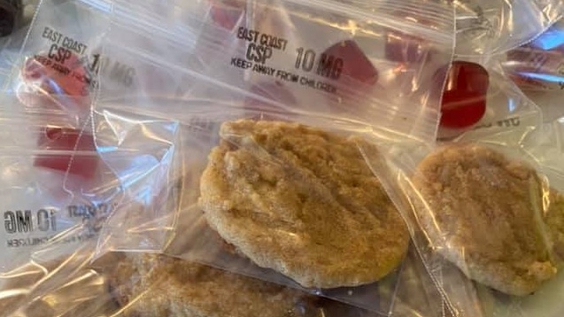You are here
Home 🌿 Recreational Marijuana News 🌿 Halifax group distributes free cannabis in effort to reduce opioid use 🌿Halifax group distributes free cannabis in effort to reduce opioid use

Every Monday, Chris Backer and a group of Halifax volunteers can be found in front of the former St. Patrick’s-Alexandra School on Maitland St., handing out free weed.
The packages contain an assortment of cannabis products — edibles, capsules, joint rolling kits and more. Backer told CBC that the group, the East Coast Cannabis Substitution Program, distributes more than 200 packages every week.
The group draws inspiration from the Cannabis Substitution Project in B.C., which has been distributing free cannabis packages for more than three years. Like Backer’s group, the organization relies on donations from local businesses and volunteers.
“A lot of us have come off of our own addiction because of cannabis,” Backer said. “So it’s one of those things that if you know it works, how can you not help people with it?”
A study set in Vancouver and published earlier this year in PLOS One, a peer-reviewed scientific and medical journal, found that for some street youth, cannabis is a “reverse gateway drug.”
The study was conducted from 2017 to 2019 and focused on 56 “street-involved youth” in Vancouver. Young people “may use cannabis to reduce the harms caused by other forms of substance use and in order to transition away from more harmful forms of substance use,” it found.
“I’ve been sleeping on the beach for three months. I smoke a lot of weed. And then I don’t have sadness,” 19-year-old Jeremiah told researchers. “My environment is still sad, but smoking weed helps me a lot. That’s very, like, therapeutic for me. And it just lets me, like, keep going.”
A recent study from the University of Victoria also found that medical cannabis consumption led to a reduction or even discontinuation of alcohol use for individuals seeking to cut back on drinking. The study, which was done in partnership with cannabis company Tilray, found that medical cannabis consumers also cut back on tobacco and nicotine, opioids and other prescription drugs.
In Halifax, Backer says his group, which is a registered non-profit, would be out more than once a week if they had the resources to allow it.
“The kits, in my opinion, don’t last a week for most people,” he said. “But for a lot of people that are battling heavier addiction, I mean, stronger doses than what I’m providing would be better.”
420 Intel is Your Source for Marijuana News
420 Intel Canada is your leading news source for the Canadian cannabis industry. Get the latest updates on Canadian cannabis stocks and developments on how Canada continues to be a major player in the worldwide recreational and medical cannabis industry.
420 Intel Canada is the Canadian Industry news outlet that will keep you updated on how these Canadian developments in recreational and medical marijuana will impact the country and the world. Our commitment is to bring you the most important cannabis news stories from across Canada every day of the week.
Marijuana industry news is a constant endeavor with new developments each day. For marijuana news across the True North, 420 Intel Canada promises to bring you quality, Canadian, cannabis industry news.
You can get 420 Intel news delivered directly to your inbox by signing up for our daily marijuana news, ensuring you’re always kept up to date on the ever-changing cannabis industry. To stay even better informed about marijuana legalization news follow us on Twitter, Facebook and LinkedIn.




